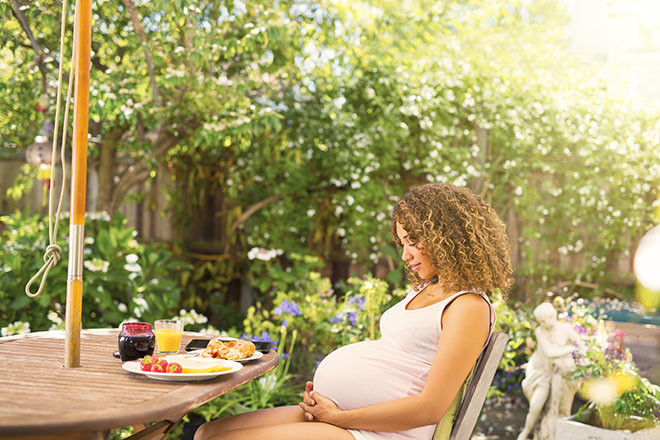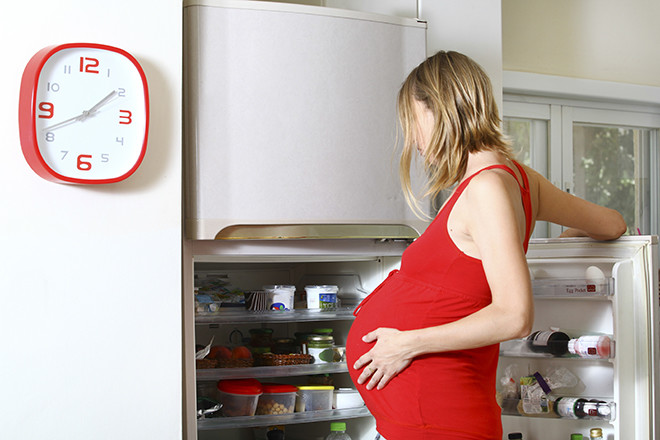 A photo: Getty Images Variables are subject to the same infections as everyone else. This pregnancy is not affected in any way. Another thing is that with respect to treatment in pregnant women, there are restrictions on a number of medications. It is desirable for future moms to use drugs that are not absorbed, that is, they can not penetrate the placenta and affect the fetal condition (sorbents - activated carbon, smect, enterosgel, from antibacterial - preparations of local action, for example, stoppier, erysefuril). In diarrhea, it is necessary to replenish the fluid supply, as it leads to dehydration of the body. Here, sweet tea, non-carbonated mineral water, salt solutions (such as a rehydrone) will help. Drink often, but in small portions, so as not to provoke vomiting. When pregnancy is possible, stratification of symptoms of intestinal infection on the symptoms of early or late toxicosis, which leads to more pronounced clinical manifestations. However, severe consequences are observed, as a rule, only with infectious diseases rare for our country, such as typhoid and amoebiasis.
A photo: Getty Images Variables are subject to the same infections as everyone else. This pregnancy is not affected in any way. Another thing is that with respect to treatment in pregnant women, there are restrictions on a number of medications. It is desirable for future moms to use drugs that are not absorbed, that is, they can not penetrate the placenta and affect the fetal condition (sorbents - activated carbon, smect, enterosgel, from antibacterial - preparations of local action, for example, stoppier, erysefuril). In diarrhea, it is necessary to replenish the fluid supply, as it leads to dehydration of the body. Here, sweet tea, non-carbonated mineral water, salt solutions (such as a rehydrone) will help. Drink often, but in small portions, so as not to provoke vomiting. When pregnancy is possible, stratification of symptoms of intestinal infection on the symptoms of early or late toxicosis, which leads to more pronounced clinical manifestations. However, severe consequences are observed, as a rule, only with infectious diseases rare for our country, such as typhoid and amoebiasis. Photo:Getty Images A pregnant woman needs to be much more attentive to her health. And, of course, maintain hygiene. Everyone knows the rules, they are simple: - Wash your hands before eating, after using the toilet, after returning from the street. By the way, Dr. Komarovsky talked about how to wash your hands correctly in our . - Try not to swallow water while swimming in open water. - Use boiled, bottled or purified water for drinking. - Do not store food at room temperature. - Try not to allow food to reheat. - Rinse vegetables and fruits well under running water.
Photo:Getty Images A pregnant woman needs to be much more attentive to her health. And, of course, maintain hygiene. Everyone knows the rules, they are simple: - Wash your hands before eating, after using the toilet, after returning from the street. By the way, Dr. Komarovsky talked about how to wash your hands correctly in our . - Try not to swallow water while swimming in open water. - Use boiled, bottled or purified water for drinking. - Do not store food at room temperature. - Try not to allow food to reheat. - Rinse vegetables and fruits well under running water.

Making Money with Desserts: Success Stories
Evgeniya Polischuk (Fedutinova) instagram:@evgeniyafedutinovavk.com/janeshomebaking– It all started with baking for family and friends. Gradually, I started posting photos of my baked goods on Instagram – and orders started coming in. I made my first custom-made cake on October 13, 2014, and a little earlier I started making macaroons and cupcakes. You could say that the business “found me”, I am very […]

Soups are cold recipes with photos
Cold cucumber soup with yogurt and lemonsorbet from the chef of the restaurant La Taverna Alexander Zhurkin Photo: Getty Images Ingredients: Plain yoghurt – 125 g Cucumber – 150 g Lemon/lime sorbet – 50 g Cocktail shrimp – 24 g Fresh ginger juice – 1 g Lime juice – 5 g Fresh orange juice – 5 g Parsley – 1 g Pink pepper – 1 g Watercress – […]

barbeque kebab
Pork tenderloin in glaze Photo:Dmitry Bayrak/dbstudioPreparation time: 20 minutes + marinating time.Calories: 454 kcal per serving.For 4 servings: 4 pork tenderloins (approximately 300 g each), 1 onion, 2 cloves of garlic, 1 tsp. lemon zest, 1 tsp. lemon juice, a pinch of ground cumin, coriander and turmeric, 1 tbsp. vegetable […]

Pierre Duacan: dietary recipes: Ducane diet
Beetroot soup Photo:Season’S, Luxury Hotels RepresentationYou will need:· Boiled beetroot – 60 g· Fresh cucumbers – 20 g· Red radish – 20 g· Green onions – 10 g· Egg – 1 pc.· Drinking mineral water – 200 g· Salt – 1 gPreparation:· Boil the egg and beetroot.· Grate the cucumbers, radish and part of the beetroot. Put everything […]





